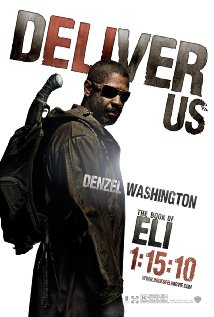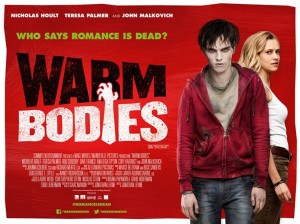Where alternate history settings involving Earth are concerned, I have a bit of a compulsion, and I’m not sure how many others share it.
One of the first things I do is look and see what happened to my hometown.
Now since my hometown happens to be Los Angeles, I can often be assured there will be some mention of this, unless it’s something like Castle Falkenstein where the focus is elsewhere (there may have been a supplement later, I don’t know). Certainly in any of the recent run of “worldwide disaster” movies of the last decades there will be some celluloid time devoted to the destruction of the City of Angels, occasionally getting rather nasty since although a lot of screenwriters live here, a lot of them are originally from out of town and despise the place.
In any sort of sandbox game set in Los Angeles I’ll happily ignore the mission prompts in favor of driving down the developers’ version of Hollywood Boulevard to see where it’s accurate and where things differ. Sometimes you can tell the closest they ever got to L.A. was a postcard. Sometimes you get the sense they do know the place and would love to be more detailed but can’t do so due to memory constraints. I’ve heard that even if all the rest was sorted out, using actual storefronts and houses would require written releases from each owner before they could be represented in a virtual environment; which seems nuts on the one hand, but on the other we do live in a world where a movie character can’t be shown drinking a can of Budweiser unless you have a product placement deal with Anheuser-Busch.
I’ve seen my hometown innacurately represented or just outright wiped off the map so many times that it may seem bizarre I’d continue to be curious over its fictional versions, but I have to admit that no matter how crazy the representation might get, there’s still a strange sense of anchoring that comes from having your martians invading a place called Los Angeles versus them invading, say, Metropolis. It grounds the situation, and as long as you’re not getting too far-fetched and are hitting the right stereotypes and landmarks, most of the world will never know nor care that the La Brea Tar Pits are not located in Santa Monica. For that matter even I probably won’t care if you’re entertaining me properly and being somewhat creative.
Welp, I hope that last holds true when I go out and start writing places like San Antonio (Santone) and now Fort Huachuca into my fictional world. I’ve said before that one of the reasons I love the Fallout games is the ability to visit their versions of real world locations, even if as a non-native I can still tell there’s a good deal of artistic license in effect even given how funky the Fallout aesthetic already is. If I can tab over to Google Maps and more or less follow along with it as my character wanders, I’m pretty giddy about that, and if you’ve played Fallout New Vegas, here’s a trivia tidbit for you: the starting town of Goodsprings, including the Saloon and General Store, straight up exists and could be visited on a roadtrip. That’s kind of cool to consider. I bet they’ve got some gamer tourism out of that. Considering at least one guy dedicated an entire site to his New Vegas inspired tourism, I wouldnt bet against me.
San Antonio and Fort Huachuca probably don’t need my help in terms of tourism, and that’s probably for the best considering I’ve turned one into a corporate-dominated police state (though at least for the Inner Zone, a very nice looking police state) and the other into the breeding grounds of a very nasty bunch of outlaws. That’s the downside of using real places beyond just possibly getting them wrong, there’s always the possibility people could take offense at a negative portrayal, fictional though it might be. Again, living in Los Angeles I’m numb by now to such things, but for a less represented community, who knows? Did the people of the town of Nipton get bent out of shape over its representation in FNV? If they did I never heard of it. Maybe they were just happy enough to be on the map.
I’ll take the risk though, because having those anchor points is cool. The Zombie Ranch world is not our world. It has diverged from what we know in a big, shambling way… and while I may never get around to describing the situation in, say, Oslo, and I’ve still kept the exact location of the Z Ranch deliberately vague, I still like the occasional opportunity to use Earth and all its history as my jumping off point. It’s the richest backstory for fiction there is.








 Expectations can definitely play a role in your reaction to a movie. The greater your excitement and hopes, the easier it is for a film to not meet them. Conversely, if you start off from a position of “This is gonna be crap” or “I’m only watching this because the remote’s out of reach”, there’s every possibility a movie might not only exceed expectations (faint praise, since the bar is set low) but actually end up feeling like it was an entertaining use of your time.
Expectations can definitely play a role in your reaction to a movie. The greater your excitement and hopes, the easier it is for a film to not meet them. Conversely, if you start off from a position of “This is gonna be crap” or “I’m only watching this because the remote’s out of reach”, there’s every possibility a movie might not only exceed expectations (faint praise, since the bar is set low) but actually end up feeling like it was an entertaining use of your time.